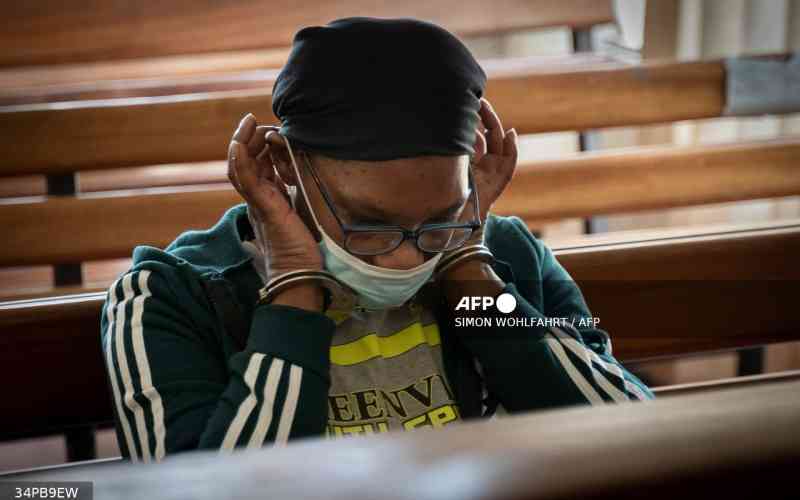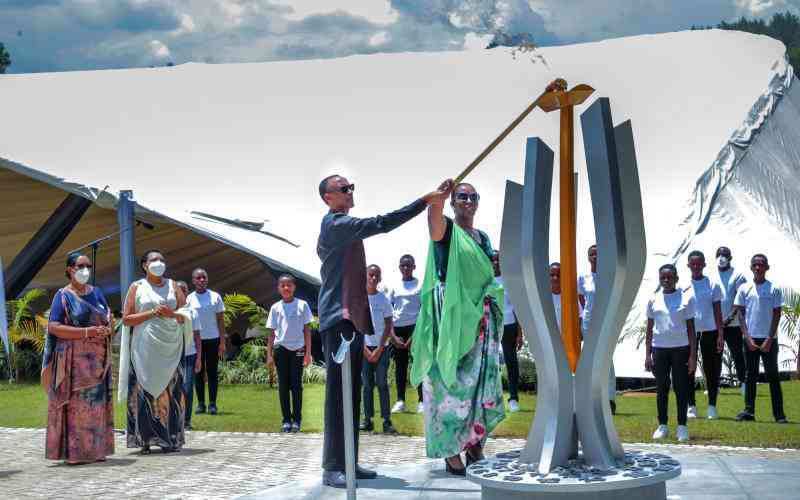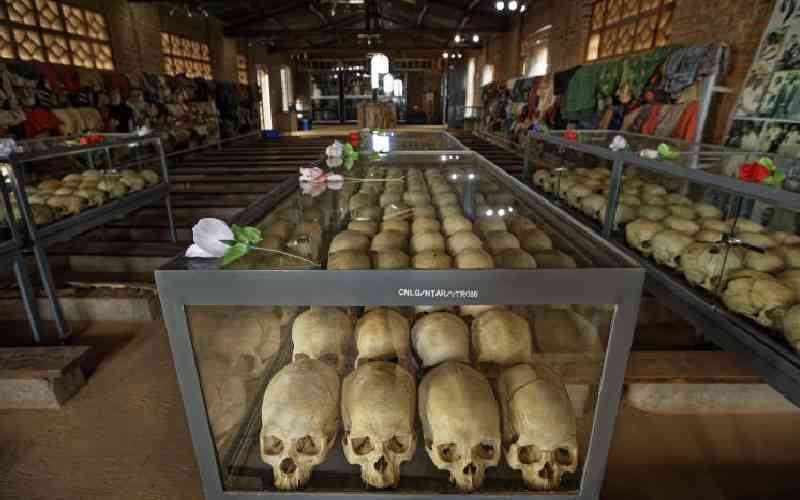By Juma Kwayera
Last week’s attempted assassination of former Rwanda military boss, Lt-Gen Faustin Kayumba Nyamwasa, and Friday’s killing of journalist Jean Leonard Rugambage has raised serious questions about the conduct of the country’s general election scheduled for August.
Across the East African Community bloc, there are fears President Paul Kagame is bent on pummelling rivals into submission ahead of the polls. Any form of opposition is instantly exterminated, which analysts say explains why Kayumba and Uvumugizi newspaper editor put their lives on the line by questioning human rights abuses in Rwanda.
The two shootings, in addition to harassment by the State of lawyers representing the 1994 genocide suspects, has regional attention fixed on Kigali, which is yet to shed the image of a rogue state.
The shooting of Nyamwasa and killing of Rugambage has echoes of how in May 1998 first post-genocide Minister for Interior and Community Development, Seth Sendashonga, was assassinated by unknown assailants in Nairobi. The mystery Sendashongo assassination has not been resolved to this day.
Just like the case of the minister’s murder, the former military boss’ family suspects Kagame’s hand in last weekend’s aborted assassination in Johannesburg, South Africa.
At that time he was set to travel to Brussels to launch a political party, Forces des Resistance pour la Democratie together with former Prime Minister Faustin Twagiramungu.
Sendashonga was travelling in his wife’s UN car when the assassins accosted him and sprayed him with bullets.
According to Nyamwasa’s wife, Rosette, the former army chief was shot almost in a similar manner. The wife worked with UNEP at Gigiri, Nairobi.
Sendashonga, Twagiramungu and other moderate Hutu ministers were dismissed or forced to leave the Rwandan government in August 1995 for ‘incompetence’.
The same reason was cited when Nyamwasa, a one-time Kagame ally in the Rwanda Patriotic Front, was nearly killed last weekend. Looked through the Tutsi-Hutu ethnic broken mirror, Kagame faces accusations of perpetuating the ethnic hate that led to the 1994 genocide.
Kagame is Tutsi, while Nyamwasa, Rugambage, Sendashonga and the two opposition leaders the government banned from taking part in the August polls are Hutu.
Sendashonga survived the first assassination in 1996, for which a Rwandan diplomat in Nairobi, Francis Mugabo, was accused of executing on behalf of Kigali.
Diplomatic row
Despite the criminal charges levelled against Mugabo, Kigali stubbornly declined to waive the immunity from arrest status, which precipitated a diplomatic row between the two governments. Kenya went ahead and severed diplomatic links with Rwanda.
Stay informed. Subscribe to our newsletter
Curiously, there has been no reaction from the East African Community, in which Rwanda is a member.
One of the thresholds Rwanda and Burundi committed themselves to meeting before joining the bloc was allowing political pluralism to thrive.
Lawyer Odenda Lumumba, who was in Kigali early this year for an international land policy conference, says the political situation in Rwanda does not augur well for Kagame.
"Kagame is popular, although he has been losing support constantly for harassing the opposition. There is little room for opposition, which is pushing for democratic space. Unless handled carefully, there is a likelihood of a surge in opposition that is increasingly embracing an ideologically revolutionary theory," warns Lumumba.
The lawyer, however, says Kagame is ahead of the rest of the presidents in the region on rule of law and development agenda.
Even though political pluralism is entrenched in the post-genocide constitution, there has been little progress towards competitive politics.
East African Law Society Communications Officer Bobi Odiko says although there has been no official statement by EAC member-states, there are already fears Rwanda is slipping back into the dark days that precipitated the 1994 genocide.
"The assassination and complaints of diminished political space must be investigated fully or else Kagame may not escape the perception that he is behind the killings. Fear has spread in Rwanda that Kagame wants to run the opposition out of town through suppression of divergent views and assassinations," says Odiko.
 The Standard Group Plc is a
multi-media organization with investments in media platforms spanning newspaper
print operations, television, radio broadcasting, digital and online services. The
Standard Group is recognized as a leading multi-media house in Kenya with a key
influence in matters of national and international interest.
The Standard Group Plc is a
multi-media organization with investments in media platforms spanning newspaper
print operations, television, radio broadcasting, digital and online services. The
Standard Group is recognized as a leading multi-media house in Kenya with a key
influence in matters of national and international interest.
 The Standard Group Plc is a
multi-media organization with investments in media platforms spanning newspaper
print operations, television, radio broadcasting, digital and online services. The
Standard Group is recognized as a leading multi-media house in Kenya with a key
influence in matters of national and international interest.
The Standard Group Plc is a
multi-media organization with investments in media platforms spanning newspaper
print operations, television, radio broadcasting, digital and online services. The
Standard Group is recognized as a leading multi-media house in Kenya with a key
influence in matters of national and international interest.








